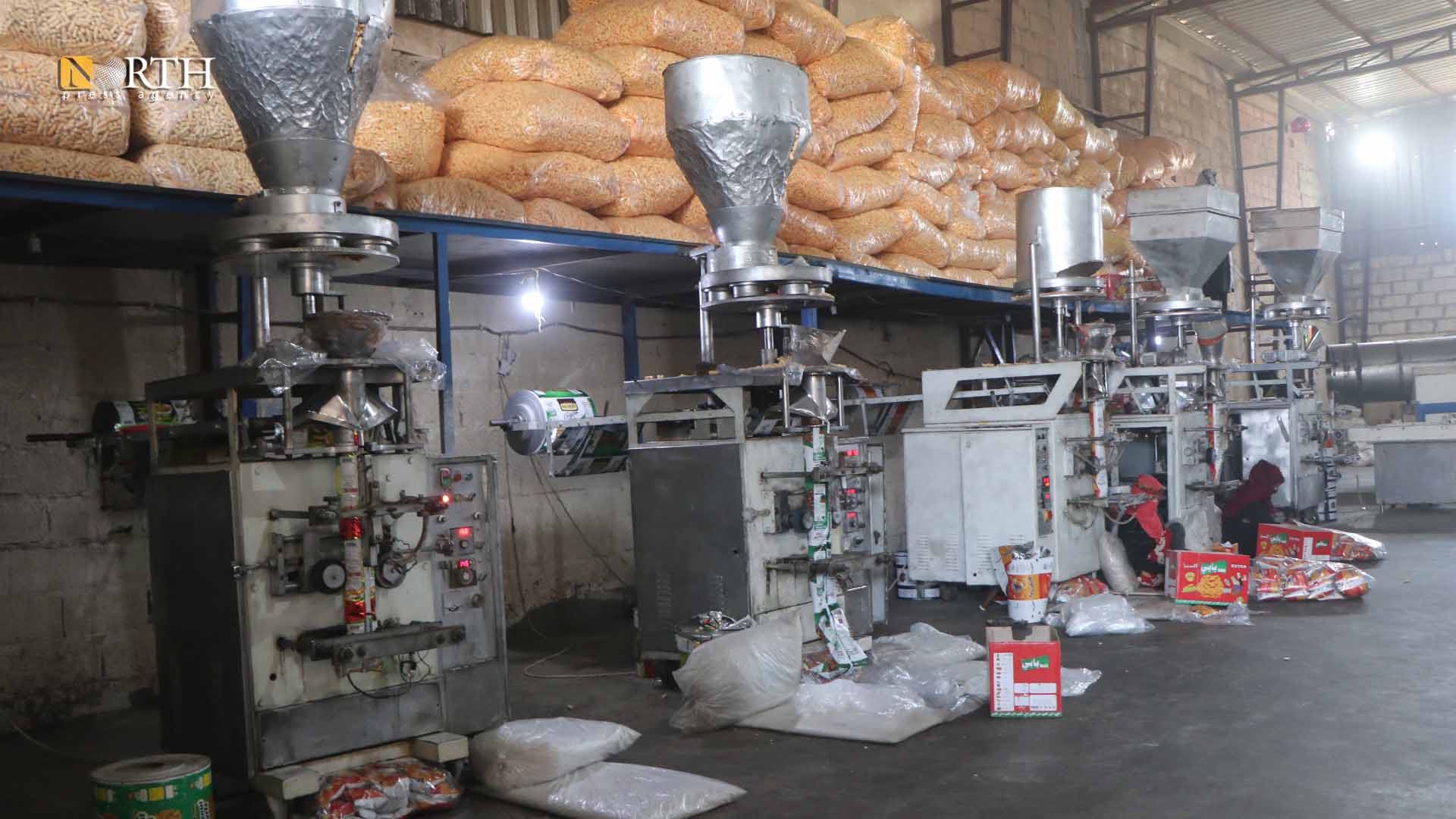HASAKAH, Syria (North Press) – Light industries’ factories in the city of Hasakah, northeastern Syria, provide job opportunities for residents and displaced people in the area in addition to providing local products at lower prices than those imported or coming from the Syrian interior.
The city of Hasakah includes more than 400 facilities for the manufacture of foodstuffs, detergents, agricultural tools, an iron smelting plant and workshops for the production of clothing, according to the Chamber of Industry of the Directorate of Economy of the Autonomous Administration of North and East of Syria (AANES).
These facilities contribute to secure a large percentage of the region’s needs, according to those in charge of them, in light of the Syrian government’s closing of the internal crossings with the Autonomous Administration areas, and the continued closure of the Tel Kocher (al-Ya’roubiya) humanitarian crossing on the Iraqi border.
Good profits
Muhammad Rasho, 33, owner of the Rasho Factory for manufacturing potato chips in Hasakah, said that the production of his factory is sold at half the value of the imported one because there are no additional costs such as shipping and customs which cost a lot of money.
“We are making good profits and providing the goods in the market at lower prices,” he added.
Rasho attributes his satisfaction with the workflow in his factory to the availability of sufficient raw materials, “and we are also able to distribute our products in various cities in northeastern Syria, from Qamishli to Manbij and Deir ez-Zor.”
While Suleiman Shendi, owner of Shendi Printing Press in Hasakah, said that they are constantly developing their work by providing the printing press with new materials and modern machines.
“But the main problem is securing the necessary raw materials for printing such as ink and papers which are completely imported from abroad in addition to the lack of expert labor,” he added.
During the past few years, the printing press was able to offer its products as alternatives to 70% of its equivalents that were coming from the cities of Aleppo and Damascus, according to Shendi.
However, the instability of the exchange rate of the Syrian pound against the US dollar greatly affects the work that relies on imported materials bought in dollars to produce products sold in the local currency, according to the factory owner.
Job opportunities
The emerging industrial facilities in Hasakah provide hundreds of job opportunities for youth, women and heads of families in light of the difficult living conditions that the region is going through.
The Rasho factory provides job opportunities for 50 workers of both the population and the displaced, including 30 women and girls whose work contributes to support their families.
Raw’a al-Sa’ad, 26, a displaced female from the city of al-Mayadin, east of Deir ez-Zor and living in Hasakah, said that through the work in the factory, she is trying to help her family of 11, which is experiencing living difficulties after the death of the father.
Raw’a gets 5,000 SYP as a daily wage for her nine-hour work.
As for Samar al-Abdullah, 34, a displaced female from Homs, central Syria, she receives 7,000 SYP per day in return for her work in factories for packaging legumes.
On June 19, 60 industrial and commercial entities participated in an annual exhibition of local products held by the AANES Economy Board for the third year in the city.

